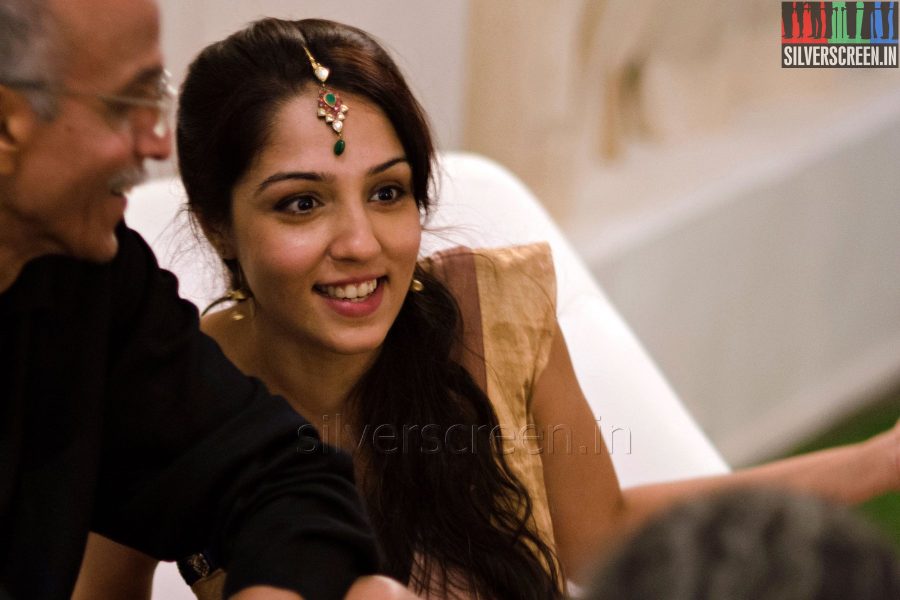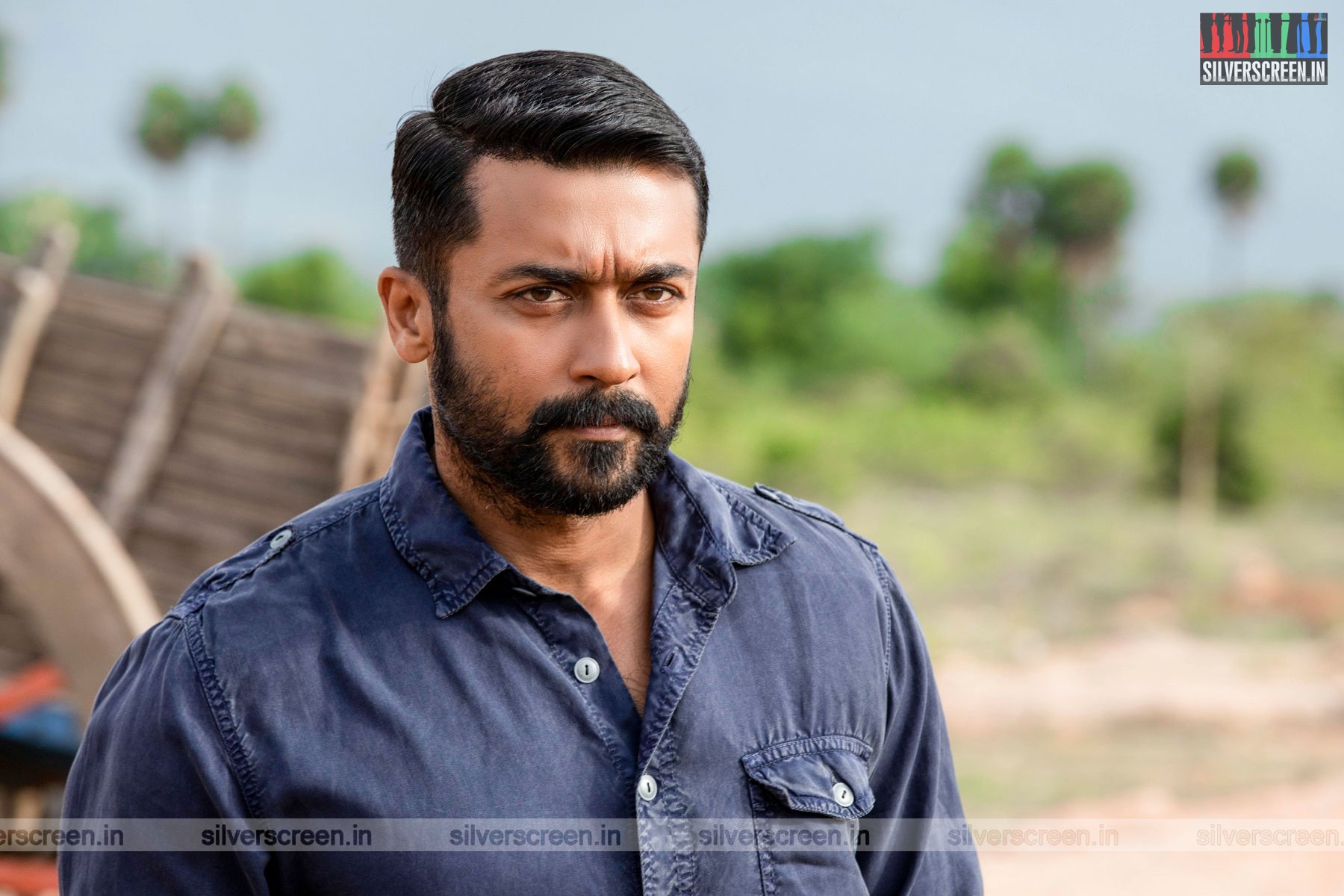Lekha Washington spends a lot of her time brooding…
Over completely random things. A couple of years ago, she remembers wondering why a chair can’t hinge on the wall. Like a painting that can be hung. Or to quote her website, just as an LED television could: sit pretty on a hook. She also remembers thinking that if it did, then it had to be circular. ” Like a bindi. Blood red; a dramatic crimson.” And so, just like that, out of a mere random whim, her Red Dot Chair was born. Featured recently on the cover of India Today; with Deepika Padukone perched prettily on it, and even more recently, pictured with Amitabh Bachchan and Arvind Kejriwal, the chair is courtesy a brooding mind. Or so Lekha says. “I know a designer is supposed to have a story for every product,” she laughs, “so yes, this is the official version.”[quote align=’right’]I wanted to prove to the Tamil audience that I was capable of playing the conventional heroine – ever since the movie with Simbu failed to take off.[/quote]
But Lekha also knows that an actor should have several interesting stories handy. Take for instance, the one about Saro that she narrates. Va Quarter Cutting, her 2010 outing, directed by Pushkar and Gayathri, received average reviews. Her performance on screen as Saro, the suicidal teenager, wasn’t rated well; and some even called her “just a pretty face”. Lekha, though, insists that was the whole point after all. Her brief about Saro, she says, was exactly what we got to see on screen. Slightly stupid. A bit naïve. A child. “That was the vibe,” she adds, “I should be dumb in the film.” As a school kid, Lekha recalls, she was “very into her own world” – so much so that she would come across as “flaky” to others. So when she put on the school uniform and tied her hair up in a ponytail, she was, let’s say, very much in character. “I was transported back to 10th grade; and I channelized how I felt back then,” she laughs, “I think I succeeded because after watching Va, some people were quite surprised that I had a brain. So, I must have done something right.” She does that admit though, that there was a palpable sense of disappointment in the way the movie fared in the end. “See, people were tripping on it in Bombay and Delhi because it was unusual; and we wanted it to be a raging success, but that didn’t happen.” We then move on to happier topics.
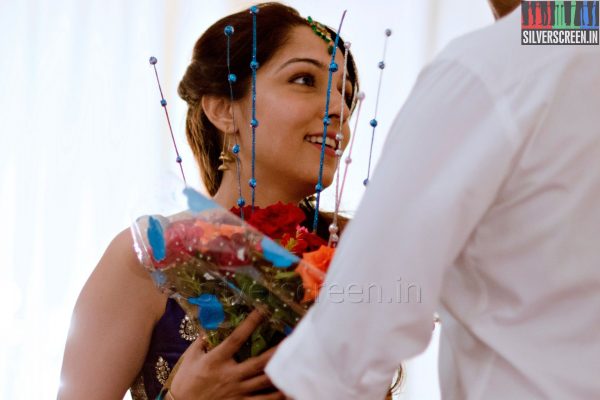
Lekha Washington
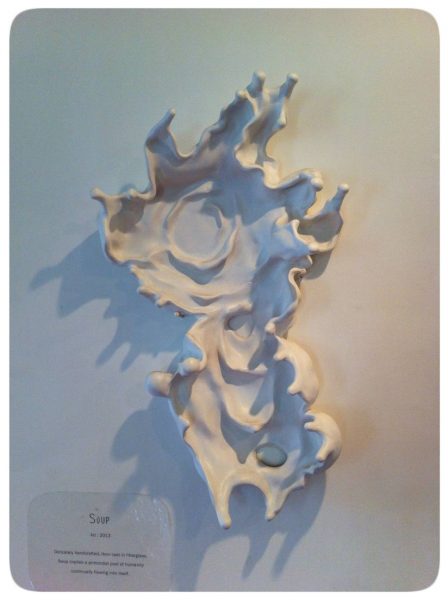
lekha-washington-soup
Language, she says, is a challenge when under pressure.But what makes her really uncomfortable, is not something that happens on screen. No, not even filming an intimate scene; which, by the way, is not as steamy as it looks when it’s being shot – especially when essayed on a “start-cut-stop basis” – and “with over 100 people watching you.” No, it isn’t that. “It is off the sets,” she says. “What I can say is that the casting couch is a reality and I won’t play with it.” She doesn’t want to elaborate further.
Lekha recalls a time when she would scrupulously jot down the dialogues off Full House. And, script a play of her own. “My father would bring taped tele-serials back from the USA, so I had access to American sitcoms. I would convert them into a play and get someone to direct it.” Of course, she would have the plum role. “Most of the cast are still my friends, so it’s alright,” she chuckles. She is selective about scripts now though. She’s quite picky as it eats away at the time which she can focus on her art and design. She doesn’t accept clichéd roles. She doesn’t want to be just a pretty face; a mere accessory.
[quote align=’left’]“There’s a scene in the movie in which I kill Vijay Raaz with my bare hands,” she reveals, “but no idea what’s holding up the movie. It was wrapped up 3 years ago; shot, colour-corrected, edited and done. I have given up worrying about it.”[/quote]When Lekha read the script of Kalyana Samayal Sadham late one night, she remembers feeling apprehensive for about “three seconds.” This had some sex in it; what would people think? But it vanished quickly. And she found herself calling R S Prasanna up and readily agreeing to be a part of it. Lekha also knew that they had to stay on the “right side of treatment” for the movie to go down well with the Tamil audience; after all, it was a sensitive subject and could easily lapse into vulgarity. But she had complete confidence in the director. And it paid off. “I wanted to prove to the Tamil audience that I was capable of playing the conventional heroine – ever since the movie with Simbu failed to take off.” KSS offered her just that. A dash of convention; and a script that called for solid performance. She loved being Meera in Kalyana Samayal Sadham (“the woman of today”).
Lekha is, in fact, like Meera, she says. Not too aggressive, but not passive either. Some think she’s being “too activist” in her opinion, but Lekha doesn’t care. “I have turned down several offers. Of course there are other actresses who choose different career paths, and they have gone on to play these roles. But I’m here to act; I love it with a vengeance.” That’s not to say she’s averse to glamorous roles, though. She doesn’t have a problem with it, she says. “I’m an actor after all and I will do whatever it takes. But if there’s nothing more to it, what’s the point? There are enough girls in Tamil cinema who will be willing to take that up.” Lekha is also “frankly not bothered” about exposure. To her, it’s more about the camera; the way it’s panned. “If someone’s going to do multiple shots of my chest or stomach, then it doesn’t matter how many layers of clothing I wear. It’s really about the male gaze, the way the camera focuses on you. I could be completely naked and not have a hint of vulgarity.”
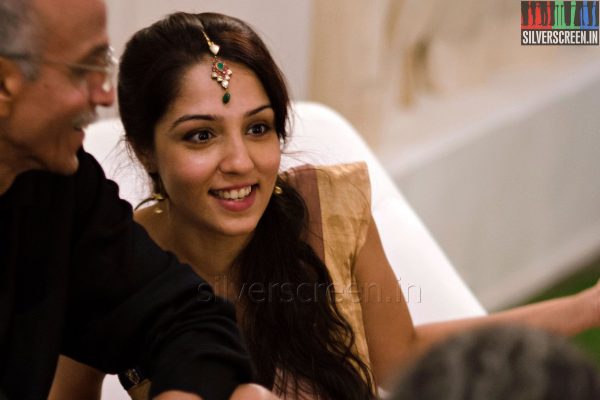
Lekha Washington
[quote align=’right’]“I’m an actor after all and I will do whatever it takes. But if there’s nothing more to it, what’s the point?[/quote]There was a time when she used to make Christmas decorations for a living. “All kinds of silly things I did,” she says. She was providing content for websites as well; and juggling a few odd jobs. “I started being independent really early,” she explains, “I had a rough childhood.” Her parents had told her explicitly, “do anything; but don’t enter cinema.” “Now they are cool though,” she declares, “they stay in Goa.” Lekha, though, feels more Tamil that anything else. “I know it doesn’t come across with my name,” she laughs, “but I was born here.” Chennai is her home, she says; having spent nearly 15 years of her life in the city, studying at Good Shepherd and later at Stella Maris. She even gets pulled in Mumbai for her south Indian accent, she emphasizes. Lalit Kala Akademi was where she had hosted her first exhibition at the age of 18. A few sculptures; all experimental work with resin, had her bedroom in a mess. Later, she would also go on to anchor a talk show on SS Music and also get her first break with Jayam Kondaan. All in Chennai.
[quote align=’left’]“You just have to be besharam about everything. Otherwise, how can you dance?”[/quote]But she’s also a “a bit of a nomad” though. Mumbai, more specifically, Bandra, has been her home for a while now. At least since her memorable IPL stint (“they were looking for someone to host intelligently.”) She was also shooting for her first (yet unreleased) Bollywood flick – John Owen’s Peter Gaya Kaam Se – learning Jujutsu and filming some unforgettable action sequences. “There’s a scene in the movie in which I kill Vijay Raaz with my bare hands,” she reveals, “but no idea what’s holding up the movie. It was wrapped up 3 years ago; shot, colour-corrected, edited and done. I have given up worrying about it.”
It’s all part of the film business, though, Lekha shrugs, “ask an actor what they are working on and all you will get is, ‘some film in some camp somewhere’.” But actresses do have the raw deal here, she admits in a candid moment. “It’s a shame that as soon as you hit 30, they assume your time is up. You can go make babies now.” If you are an actor, you’re one all your life, she says. Also, money is erratic; and most actresses don’t plan finances. There will be a fat paycheck now; and a while later, none at all. There’s also the strong urge to present a wealthy façade. “I see this in Bollywood a lot. Even to the point of being in debt…it’s all about what car you are driving and how flashy your purse is.”
Recommended
At present, the International Contemporary Furniture Fair, to be held in New York this month, is taking up most of her time. But otherwise, she has two upcoming projects – one in Hindi and the other a bilingual – to look forward to. And yes, one of them – she refuses to tell us which – is a Santosh Sivan project. The shooting hasn’t begun yet, she adds. Lekha doesn’t shout about her movies these days, thanks to her shelved film in Hindi. The only superstition that Lekha seems to hold on to; apart from being “psycho particular about using a glass rinsed with only filtered water.” Yes, we know that veers towards hypochondria, but she has her reasons; “someone I know had a deadly case of water-borne disease!”
But isn’t Santosh Sivan’s next a Tamil-Malayalam bilingual? We (slyly) try again. Lekha remains unyielding. So, we quickly talk about Upstairs – the 150-year-old bungalow in Bandra that she had converted into a gallery: to exhibit her work; and to host fun events. Think a night of stand-up comedy once; classical music the next and even poetry slam. “Between these, my hands are full,” she sighs. Does she get to unwind at all? Indulge in a spot of reading, maybe? “I’m into graphic novels; and yes, I’m reading something now, someone sent a book to me…but I can’t tell you what it is,” she says, and adds after a thought, “It is censored…no, you are definitely not allowed to know. Next question, please.”
